The Lost Cities of Central And South America - The Lost City of Z
Throughout the centuries, all over the world, there have been many legends circulating about the lost cities that were full of incredible treasures. According to the researchers, many of them are located deep in the rainforests of South America.
Apparently, few adventurers were hot on the trail of these lost cities.
A group of men accompanied by local, indigenous people is hacking through the dense Amazonian jungle. Their shirts are soaked with sweat, while their bodies are being relentlessly bitten by insects. But they have no intention of stopping. According to their primitive, often vague maps, they are close to the destination. Tense anticipation and adrenaline keep pushing them forward.
Are they going to be the ones who discover the spectacular places that will bring them the wealth and the stories making a splash on the front pages of world's newspapers?
Finally, after few days of exhausting hike, full of dangerous obstacles, they stood in the front gates of the ancient city. The ruins of once developed settlement have been devoured by the vegetation. It seems obvious that for centuries no-one has set a foot in this place. Under the clay and the tangled roots of enormous trees, something appears to be flickering. It is the legendary gold treasure!
Many adventurers, who set off for their search of the lost cities of South America, dream about such a scenario.
The Lost City of Z
When British explorer Percy Fawcett (1867 - circa 1925) went on his unfortunate expedition to South America, he had already accomplished few journeys to the wild Amazonia and it's mysterious mountains, which he attempted to map between 1906 and 1924. He made a living as military surveyor. He used to come back to primeval forests of Brazil, Bolivia and Peru, in order to search for the ruins of the lost cities, that were allegedly abandoned by unknown, developed civilizations.
Fawcett believed that somewhere around these regions was located an ancient settlement of survivors from Atlantis. He named it "The city of Z". Until the last moments of his life he was convinced that he could find it. He well knew the legend, according to which "The Lost City of Z" covered in gold and silver, was situated somewhere on Mato Grosso plateau, in the west part of Brazil. The natives call this region the Gran Moxo, and apparently it is inhabited by the mysterious tribe of people with fair hair and white skin.
Unfortunately, we are unlikely to find out if he really managed to find this place...
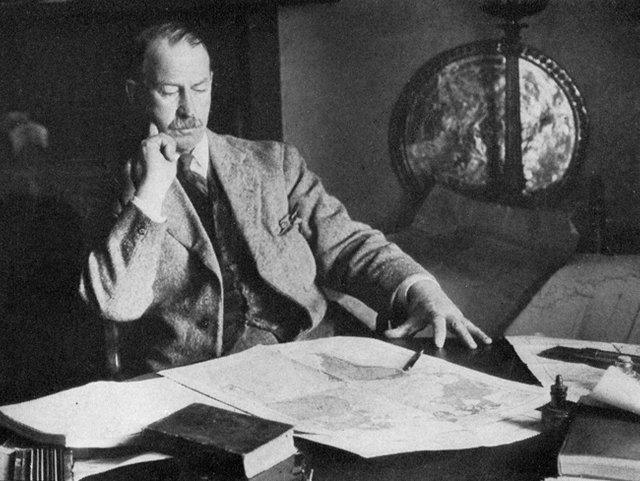
[Percy Fawcett. Image Source]
The First Lost Expedition
The hopes for finding the lost city were raised after Fawcett discovered a manuscript 512 housed at the National Library of Rio de Janeiro. The document described six-person expedition of Portuguese gold-seekers, that in 1743 went to the rainforest surrounding Mato Grosso. On the plateau, Portuguese hoped to find, as-yet-undiscovered, stone city with impressive structures. Near the place they met two white skin males.
The abandoned city hid unbelievable amount of golden artifacts and scriptures written in an unknown language. There weren't enough of them to retrieve all those treasures, so they send the native messenger to Portuguese royal governor asking for assistance. That was the last time when the expedition was seen.
All seems to indicate that the lost city wasn't abandoned after all.
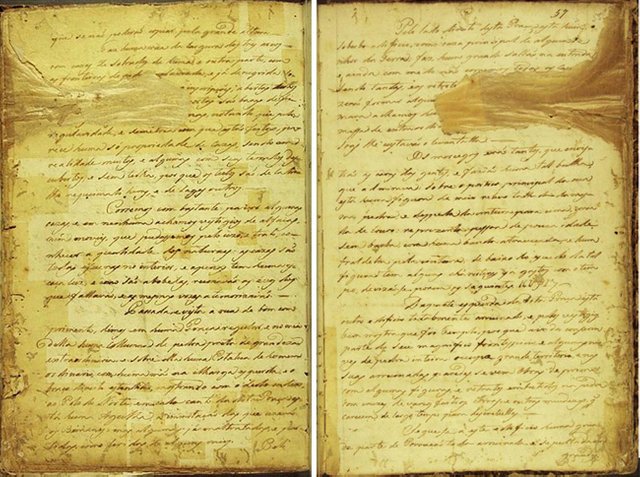
[The Manuscript 512. Image Source]
Fawcett Had No Doubts
By 1925, British explorer gathered enough information to begin the search of the abandoned city of Gran Moxo. His messages were full of optimism. "We are encouraged in our hope of finding the ruins of an ancient, white civilization and the degenerate offspring of a once cultivated race", wrote Fawcett. At the same time, he remembered about the first lost expedition and was aware that he is going to operate in a very dangerous territory.
Just before the departure he warned, "If there is any attempt to send an expedition after us, to discover our fate or fortune - and we expect to be right away from civilization for two or more years - for God's sake, stop them! England has nothing to do with this quest. It is a matter for Brazil, entirely".
In the spring of 1925, his older son, 22-years-old, Jack Fawcett and his good friend, American Raleigh Rimell joined him on this expedition.
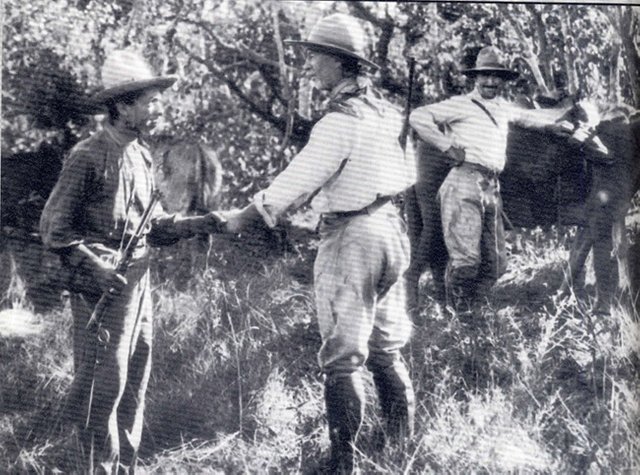
[Percy Fawcett during one of his expeditions. Image Source]
The Last Letter
The letter addressed to his wife, which was sent by Indian messenger on May 29th was full of optimism. In the letter, he wrote that from the Indian tribe of Nafaqua he acquired the details concerning the location of the City of Z and other, so-far unknown information. It appeared from the letter, that the expedition was a step away from finding the golden city. Together with his son and Rimell he set forth for the unknown lands, but there seemed to be no reason to have any worries. Meanwhile, that exact letter came out to be Fawcett's last news.
Despite the warnings, in 1928, British pioneer aviator and explorer George Dyott (1883-1972) mounted a search-and-rescue expedition but his crew only found Fawcett's and his companions personal belongings that had been left during the journey before their disappearance. Although, few Indians from the local tribe were in possession of some of Fawcett's belongings, it was very unlikely that they were responsible for the disappearance. The natives claimed that the gifts were given to them by the members of the expedition. It cannot be ruled out that it was what happened, because the explorers wanted to win the favour of the locals.
The Possibilites
Other local tribes knew nothing about the disappearance of the expedition. Nonetheless, many suspect that the travellers were killed by the local Indians. One of the reasons could be an accident on the river, during which most of Fawcett's gifts for the tribes were lost. The lack of offerings was considered a big impertinence.
Another possibility is that the expedition actually found the lost city, but they paid for the discovery with their lives - similarly as the expedition from the 18th century. The secretive Brazilian natives couldn't have allowed that their mysterious city was discovered by the outsiders.
-logic
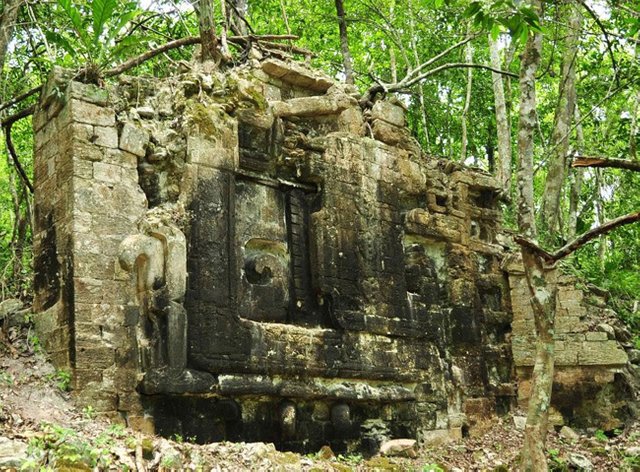
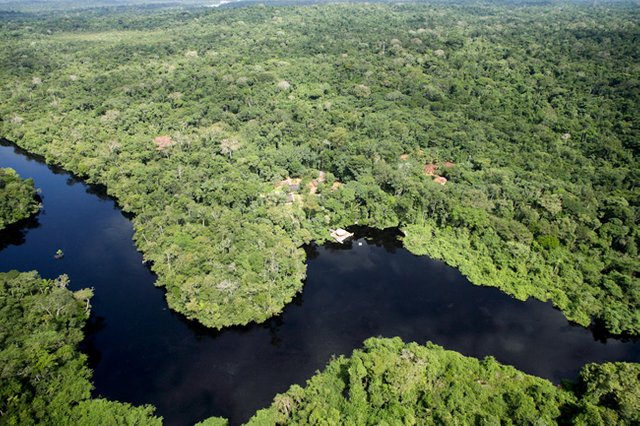
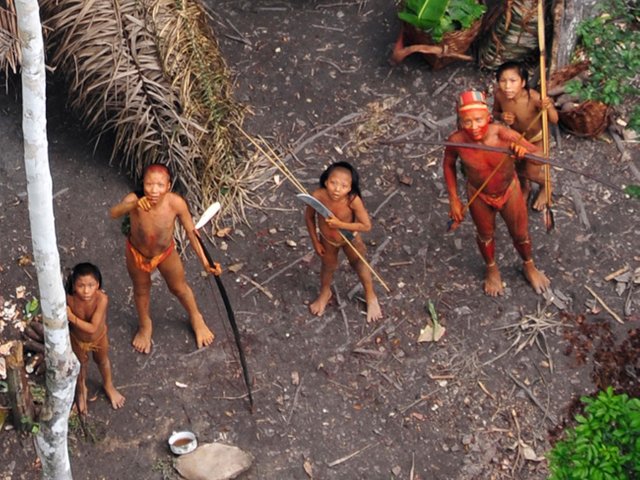
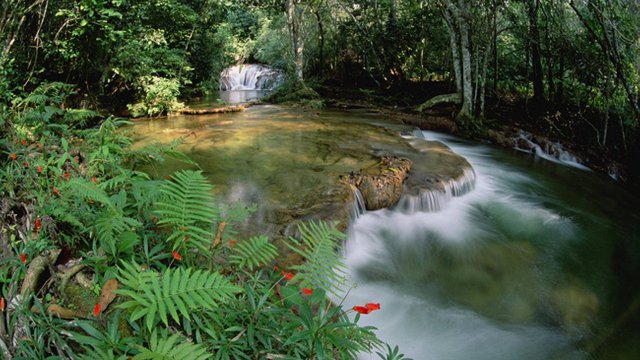
Really great post here @logic, I really enjoy these historical/anthropological posts. I think in part because I have never really been exposed to this sort of thing in my own education! I have always loved history, and the thought of exploring to find lost civilizations is one that seems very appealing in the back of my mind (though I think I can do more good by continuing to be a researcher in biotech). Thanks for posting this stuff, it really entertains me :)
Thank you. It is nice to know that people enjoy reading my articles
Nice post man, this one and the previous one about the hobbit people are both really cool!
Thanks you. I have been trying to post less but with improved quality :-)
I have long been fascinated by Fawcett's story. I also heard a story that he had "gone native" - the old English term for someone who had abandoned civilisation to take up local customs. There were tales/urban legends of local tribes talking of a tribal leader who was a tall white man with a huge beard who was alleged to be Fawcett. I suppose like many of these things the actual truth will likely never be known.
Or maybe that white man was one of the dwellers of that mysterious lost city :-)
Intriguing stuff! I imagine there are many cities we haven't yet discovered... The stonework photographed is stunning.
Thanks, I will be writing more posting about other cities
Nice article! Can't wait for the movie by James Gray about that story :)
Thanks :-)